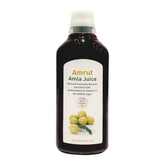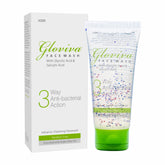
The Truth about Artificial Sweeteners
The Truth about Artificial Sweeteners
Aspartame, sucralose, and other sugar substitutes are in more foods than you may realize—and may not always be good for you
When most people think of foods with artificial sweeteners, diet drinks and candies are what come to mind. But a close look at ingredients lists shows they’re in more and more products.
One reason: Many people are trying to cut back on added sugar in their diets, so food manufacturers are looking to scale back on sugar in their products, and make them look healthier, while still preserving the sweet taste that people like.
But consuming more artificial sweeteners may not be the best way to do it. More research is pointing to potential health risks, and showing that they may not actually help people lose weight. Here we answer common questions about these sweeteners and how they affect you.
What Are Artificial Sweeteners?
Most artificial sweeteners are more accurately called non-nutritive sweeteners (NNS), because they provide no or very few calories and no nutrients. These include acesulfame potassium (Ace-K), sucralose, saccharin, steviol glycosides (extracts from the leaves of the stevia plant), and monkfruit. The latter two are often considered “natural” because they originally come from plants, but they’re highly processed in a lab. Aspartame is technically a nutritive sweetener, though it can be used in very small amounts, because it is 200 times sweeter than sugar.
Sugar alcohols, such as sorbitol, mannitol, and xylitol, are another type of low-calorie sweetener, but they aren’t considered NNS. They contain carbohydrates, although less than regular sugar.
How Can Artificial Sweeteners Affect Your Health?
The Food and Drug Administration has approved the use of these sweeteners using results from toxicity studies in people and animals and set acceptable daily intake levels for all but monkfruit and stevia. For example, aspartame’s ADI for adults is 23 mg per pound of body weight per day, or 3,680 mg for a 160-pound person. A 12-ounce can of diet soda has 200 mg of aspartame.
Research suggests that amounts of NNS below the ADIs may have adverse effects on health, including an increased risk for type 2 diabetes, metabolic syndrome, cancer, and heart disease. For example, a 2019 study published in the journal Stroke found that women who consumed 24 ounces or more of diet drinks a day had a 35 percent higher risk of heart disease, a 26 percent increased risk of stroke, and a 19 percent risk of dying early from any cause.
However, “the data on NNS hasn’t been entirely consistent,” says epidemiologist Hannah Gardener, a research assistant professor at the University Of Miami Miller School Of Medicine. One issue: It can be hard to do these kinds of studies accurately, especially because NNS are in so many products.
It’s also important to note that many studies on NNS are observational—where researchers follow people for a long period of time without intervening in their diet or habits. Observational studies can’t prove that factors like NNS cause a condition, but they can show associations.
Are Some Artificial Sweeteners Worse Than Others?
Possibly, but the data is just starting to emerge on that. For example, the NutriNet-Santé study, which tracked approximately 103,000 men and women in France for many years, has provided valuable insight about specific artificial sweetener use. It’s the first time that researchers managed to quantify the total intake of NNS, not just artificially sweetened beverages, in such a large group of people, says Mathilde Touvier, PhD, lead investigator and director of France’s Nutritional Epidemiology Research Team.
In two NutriNet-Santé studies, those who consumed around 80 mg of total artificial sweeteners a day—the amount in about two packets of sweetener or half a can of diet soda—had an increased risk of cancer (especially breast and obesity-related cancers) and cardiovascular disease than people who didn’t consume any. Aspartame and Ace-K were linked to the highest cancer risk, aspartame to a higher stroke risk, and sucralose and Ace-K to a higher heart disease risk. (The Calorie Control Council, which represents NNS companies, said the findings contradicted other research.)
“There are a lot of theories about why [different] non-nutritive sweeteners have different effects in the body,” says Yasmin Mossavar-Rahmani, PhD, a professor in the department of epidemiology and population health at Albert Einstein College of Medicine in New York City. “It could be related to how they’re metabolized and their impact on gut microbiota,” the collection of healthy microorganisms that populates the digestive system. Some research also has shown that NNS may contribute to inflammation or affect how the body uses glucose and secretes insulin, says Touvier.
Can Artificial Sweeteners Help You Lose Weight?
Overall, the research showing that NNS can lead to weight loss is surprisingly weak. For example, in 2019, researchers publishing in the BMJ analyzed 56 studies and found that overweight and obese adults who used NNS while trying to lose weight did not, in fact, lose weight. Another analysis of 37 studies, published in 2017 in the Canadian Medical Association Journal, suggested that NNS weren’t consistently linked to weight loss, and long-term use may promote weight gain.
However, they may help some people in the short term. In a 2020 study published in the Journal of the American Heart Association, researchers divided 203 sugary drink consumers into three groups. One group switched to NNS drinks, one to unsweetened drinks, and one continued drinking sugary beverages for a year. Drinking unsweetened and NNS beverages led to reductions in weight and body fat, but only among people who carried the most weight around their middles.
How Much Artificial Sweetener Is Okay to Consume?
Though the evidence on NNS is not entirely clear, “I personally think we have enough that if I were someone who was consuming diet sodas frequently, I’d think about how to reduce my consumption,” says Gardener. So if you want to use NNS drinks to help you break a sugary drink habit in the short term, or consume NNS a few times a month, that’s fine. But foods and drinks with NNS should not be on the daily menu.
Plus, compared with other dietary factors that affect the risk of chronic disease, especially cardiovascular diseases, consuming NNS may not have a major effect, Gardener says. For example, eating more vegetables, nuts, and legumes, and limiting alcohol and red and processed meats, are more important.


